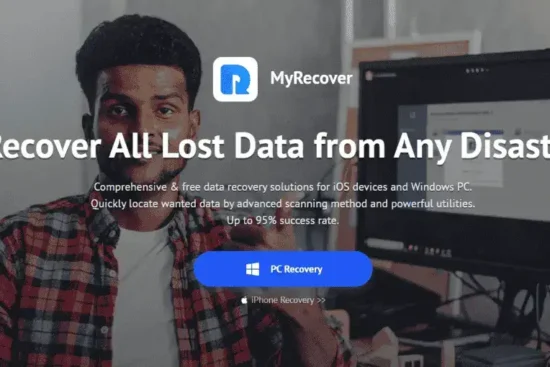
In today’s digital landscape, data privacy is a hot topic, and compliance with regulations like the General Data Protection Regulation (GDPR) is of paramount importance. If you’re a website owner or operator who relies on online advertising to monetize your content, you may be wondering how to ensure GDPR compliance while still running targeted ads. This is where a Google-certified Consent Management Platform (CMP) comes into play.
In this comprehensive guide, we’ll walk you through the process of publishing GDPR messages on your website using a Google-certified CMP. We’ll cover everything from understanding the GDPR requirements to selecting the right CMP and implementing it effectively.
Understanding GDPR Requirements
What Is GDPR?
The General Data Protection Regulation (GDPR) is a European Union regulation designed to protect the privacy of individuals and their personal data. It imposes strict rules on how organizations collect, process, and store personal data. Even if your website is not based in the EU, if you have EU visitors or users, you must comply with GDPR.
GDPR’s Key Principles
- Lawful Processing: Personal data must be processed lawfully, fairly, and transparently.
- Purpose Limitation: Data should only be collected for specified, explicit, and legitimate purposes.
- Data Minimization: Collect only the data necessary for the intended purpose.
- Accuracy: Ensure data is accurate and up to date.
- Storage Limitation: Personal data should not be kept longer than necessary.
- Integrity and Confidentiality: Implement measures to protect data integrity and confidentiality.
- Accountability and Transparency: Demonstrate compliance and transparency in data processing.
The Role of Consent Management Platforms (CMPs)
A Consent Management Platform (CMP) is a tool that helps website owners collect and manage user consent for data processing, including advertising. Google-certified CMPs are trusted solutions that integrate seamlessly with Google’s ad ecosystem, making them an excellent choice for publishers looking to maintain compliance while maximizing ad revenue.
Selecting the Right Google-Certified CMP

Key Considerations
- Certification: Ensure the CMP is officially certified by Google to guarantee compliance with their policies.
- User-Friendly Interface: A user-friendly interface makes it easier for both you and your website visitors to navigate the consent process.
- Customization Options: Look for a CMP that allows you to customize consent banners to match your website’s design.
- Granular Consent: The CMP should offer granular consent options, allowing users to choose which purposes they consent to.
- Comprehensive Language Support: Ensure the CMP supports multiple languages to cater to a global audience.
- Reporting and Analytics: Access to data on consent rates and user preferences is essential for compliance monitoring.
How to Publish GDPR Message Using Google CMP
Step-by-Step Guide for GDPR
1. Choose Your CMP
Select a Google-certified CMP that aligns with your website’s needs and user preferences.
2. Integration
Integrate the chosen CMP into your website. This typically involves adding a code snippet to your site’s header.
3. Customization
Customize the consent banner to match your website’s branding and design. Make sure it’s clear and easy to understand.
4. Purposes and Vendors
Specify the purposes for which you collect data and the vendors you work with. Users should have the option to consent to each purpose individually.
5. Language Options
If your website caters to a diverse audience, offer the consent banner in multiple languages to enhance user understanding and compliance.
6. Testing
Thoroughly test the CMP to ensure it works seamlessly and doesn’t disrupt the user experience.
7. Monitoring and Reporting
Regularly monitor consent rates and user preferences using the CMP’s reporting and analytics features.
8. Stay Updated
Keep your CMP up to date with the latest regulations and Google policies to ensure ongoing compliance.
Benefits of Using a Google-Certified CMP
- GDPR Compliance: Avoid costly fines by ensuring your website complies with GDPR regulations.
- User Trust: Demonstrating commitment to data privacy builds trust with your audience.
- Ad Revenue Maximization: A well-implemented CMP allows you to continue targeted advertising while respecting user preferences.
- Simplified Compliance: Google-certified CMPs streamline compliance efforts, saving you time and resources.
Conclusion
Ensuring GDPR compliance on your website is not only a legal requirement but also a way to build trust with your users. Utilizing a Google-certified Consent Management Platform simplifies the process, allowing you to strike a balance between data privacy and targeted advertising. By following the steps outlined in this guide and selecting the right CMP, you can navigate the complexities of GDPR compliance successfully and continue to thrive in the online advertising ecosystem.
DON’T FOGET THIS:
we donate our profit share to the students and children specially girls to continue their education, so if you find this guide is helpful so don’t forget these children and buy from our link with 1 day after clicking the button or by clicking button form our referral link or by donating to us through contacting us so that we can help them.
You can also see other article on our website that might be help full for you.




Leave a Reply
You must be logged in to post a comment.